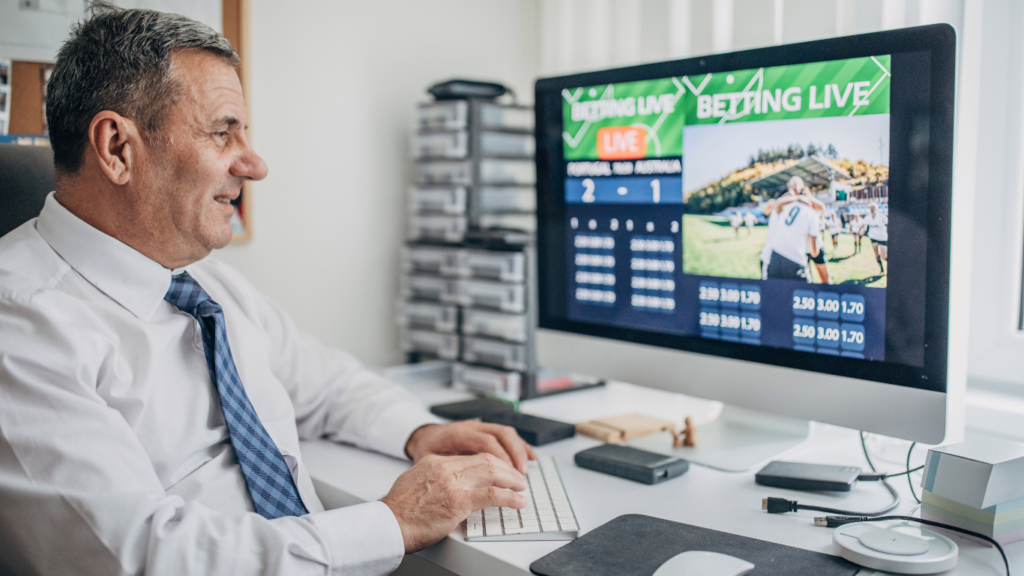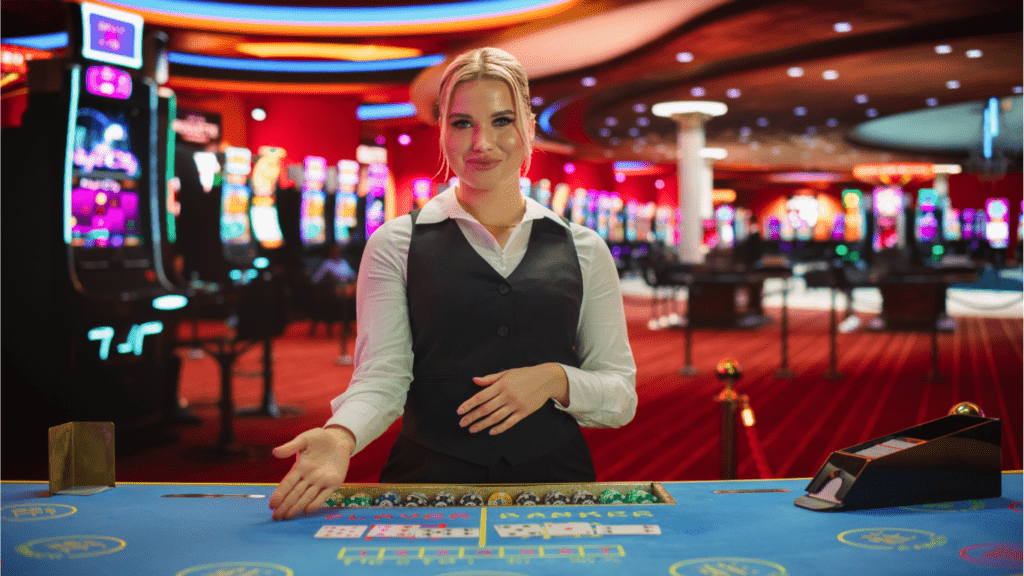Sports betting isn’t just about stats and odds—it’s a mental game where emotions often take the lead. I’ve seen how excitement, fear, and even overconfidence can push people to make decisions that defy logic. Whether it’s chasing losses or betting impulsively after a big win, emotions have a way of clouding judgment.
Understanding The Psychology Of Sports Betting
Sports betting involves a mix of cognitive processes and emotional responses. Decisions are often influenced by cognitive biases, such as the availability heuristic, where individuals overestimate the likelihood of events they vividly remember. For instance, a bettor might favor a team due to a recent high-scoring game, ignoring broader trends.
Emotions play a pivotal role in shaping betting behavior. Excitement after a win or frustration from losses can cloud judgment. Many bettors fall into the trap of loss aversion, where the pain of losing feels stronger than the pleasure of winning, leading to irrational attempts to recover losses immediately.
The illusion of control also affects how bets are placed. Many believe their knowledge or strategies make outcomes more predictable than they actually are. Confidence, when disproportionate to actual expertise, can result in overestimating probabilities and higher-risk wagers.
Understanding these psychological elements helps me anticipate how emotions and biases influence my betting patterns. Recognizing these influences allows for more thoughtful and objective decision-making.
The Role Of Emotions In Sports Betting
Emotions influence sports betting decisions, often leading to actions driven by feelings rather than logic. Understanding their role reveals how bettors navigate:
- wins
- losses
- near-miss experiences
The Thrill Of Winning
Winning triggers dopamine release, creating a strong sense of satisfaction and excitement. This emotional high can encourage overconfidence, pushing bettors to place larger or riskier wagers. For example, after a successful bet, I might believe my strategy is flawless, even if luck played a role. This thrill often strengthens engagement, making it harder to maintain objectivity.
The Fear Of Losing
The fear of losing impacts behavior by prompting safer or more conservative bets. Loss aversion, where losing feels more painful than gaining feels rewarding, may lead me to avoid risk entirely or, conversely, chase losses irrationally. For instance, fearing another loss could make me stick to smaller bets that don’t align with my usual strategy. This emotional response can disrupt logical decision-making.
The Impact Of Near-Miss Events
Near-misses, such as losing a bet by a single point, amplify emotional reactions and create a feeling of “almost winning.” These events strengthen the belief that success is within reach, encouraging repeated wagers. If I experience a near-miss, I might convince myself that persistence will lead to a win, even when the odds don’t support it. This psychological effect sustains engagement, making outcomes feel closer than they truly are.
How Cognitive Biases Influence Betting Decisions
Cognitive biases affect how bettors perceive risks and outcomes, often steering decisions away from logical reasoning. Recognizing these biases can help minimize errors and improve betting accuracy.
Overconfidence Bias
Overconfidence leads bettors to overestimate their ability to predict outcomes. Experienced bettors may feel their knowledge or past success guarantees future wins, causing them to bet larger amounts or take unnecessary risks. For example, a bettor familiar with a particular team’s performance might assume they’re certain to win without analyzing current factors like injuries or form. This bias increases exposure to losses by disregarding uncertainty in outcomes.
Gambler’s Fallacy
The gambler’s fallacy creates a belief that past outcomes influence future results in independent events. Bettors might assume that a losing streak means a win is imminent or that consecutive wins signal guaranteed future losses. For instance, after betting on three losing games, someone could irrationally conclude that the next wager is “due” for a win. Such thinking ignores the random nature of most sports events, leading to impulsive and misguided betting behaviors.
Confirmation Bias
Confirmation bias drives bettors to focus on information that supports their preexisting beliefs while ignoring contradictory evidence. A bettor convinced of a team’s superiority might only consider their home-ground advantage while disregarding their weak defensive records or recent injuries. This selective attention results in skewed assessments and increases the likelihood of flawed bets. Integrating diverse and reliable data sources can counterbalance this bias and improve decision-making.
Strategies To Manage Emotions While Betting

Emotions significantly influence sports betting decisions. Implementing specific strategies can help maintain control and foster rational decision-making.
Setting Clear Limitations
- Establishing predefined limits reduces impulsive behavior during betting
- Set a strict budget for each betting session, ensuring I never wager more than I can afford to lose.
- Time limitations also help; dedicating specific periods for betting prevents prolonged exposure, which may trigger emotional responses like chasing losses.
- It’s essential to stick to these limits, regardless of wins or losses, to maintain consistent discipline.
Recognizing Emotional Triggers
Identifying emotional cues minimizes impulsive decisions. I observe how wins elate me or how losses frustrate me to avoid risky behavior, like overconfidence or desperation betting. For instance, I recognize that betting after a big win might lead to larger, careless wagers, while frustration from a loss may prompt irrational recovery attempts. Monitoring these reactions helps me pause and reassess before placing additional bets.
Practicing Mindfulness And Discipline
Mindfulness enhances awareness of emotional states, promoting objective decision-making. I practice staying present during betting to focus on logical evaluation rather than emotional impulses. For example, deep breathing or short breaks help reset my focus when I’m overwhelmed. Consistent self-discipline, such as avoiding alcohol or distractions while wagering, ensures adherence to my predetermined strategies and prevents emotional bias.
The Social And Psychological Consequences Of Emotional Betting
Emotional betting often carries significant social and psychological ramifications, impacting both financial stability and personal relationships. It can create a ripple effect that influences stress levels and decision-making, extending beyond individual bettors into their social circles.
Financial Strain And Stress
Emotional betting often leads to repeated losses, which strain financial resources and disrupt long-term stability. Bettors chasing losses may disregard budgets or savings, creating a cycle of debt and increased pressure. For example, impulsive wagers placed after a losing streak can escalate monetary losses, compounding stress and anxiety.
Stress from financial setbacks can spill into other areas of life, affecting job performance, family dynamics, and mental health. Chronic stress might manifest as poor sleep, reduced focus, or feelings of guilt, particularly when gambling funds intended for essential expenses have been used. Recognizing these implications helps mitigate the risks of unchecked emotional betting.
The Role Of Peer Influence
Peer influence frequently shapes betting behavior, encouraging risky decisions fueled by social pressure. Bettors often feel compelled to match friends’ wagers or partake in group betting activities, even when these align poorly with their strategies. For instance, a bettor might increase their stake to avoid appearing less confident in front of peers.
The need for social validation often exacerbates emotional betting, leading individuals to chase high-risk wagers that fit group norms. This environment fosters overconfidence and a reluctance to admit losses. Being mindful of peer pressure and prioritizing personal goals can counteract this influence, ensuring betting choices remain informed rather than reactionary.



 Mark Buxtononics is the Senior Betting Analyst at Gamble Time Hub, bringing sharp analytical skills and a deep understanding of betting markets to the forefront. Specializing in data-driven insights and predictive analysis, Mark delivers in-depth evaluations of sports betting trends, odds movements, and strategic plays. His work helps readers make smarter, more informed decisions across a variety of betting platforms. With a commitment to clarity and accuracy, Mark plays a key role in establishing Gamble Time Hub as a reliable source for expert betting knowledge.
Mark Buxtononics is the Senior Betting Analyst at Gamble Time Hub, bringing sharp analytical skills and a deep understanding of betting markets to the forefront. Specializing in data-driven insights and predictive analysis, Mark delivers in-depth evaluations of sports betting trends, odds movements, and strategic plays. His work helps readers make smarter, more informed decisions across a variety of betting platforms. With a commitment to clarity and accuracy, Mark plays a key role in establishing Gamble Time Hub as a reliable source for expert betting knowledge.

